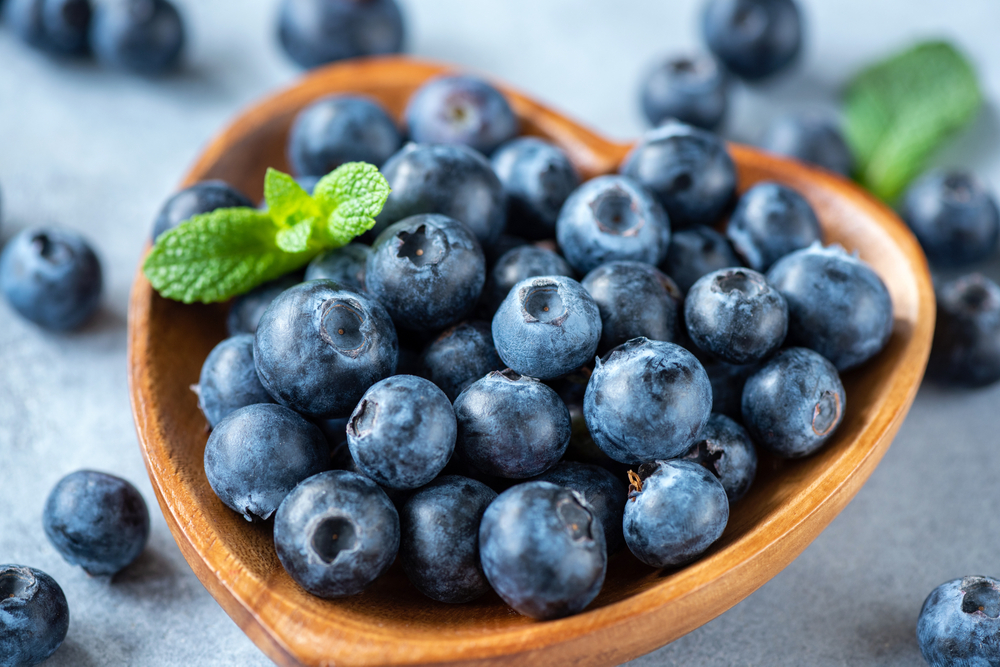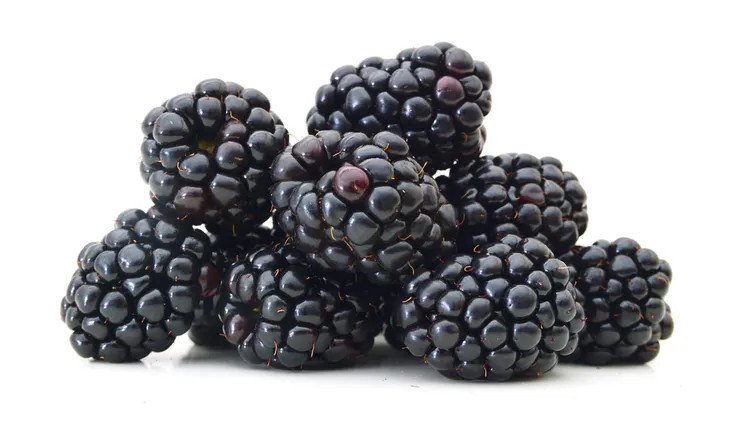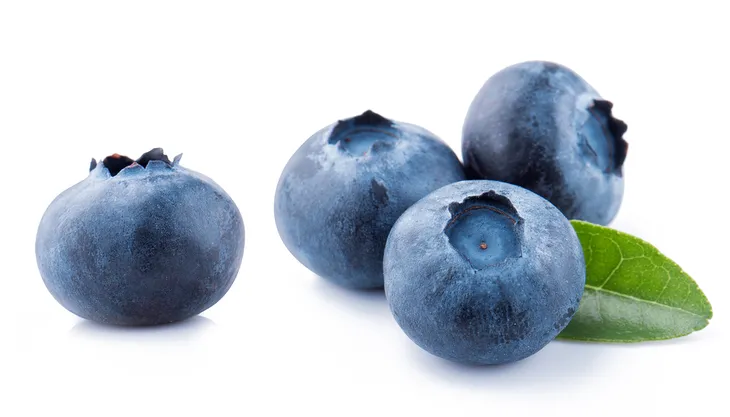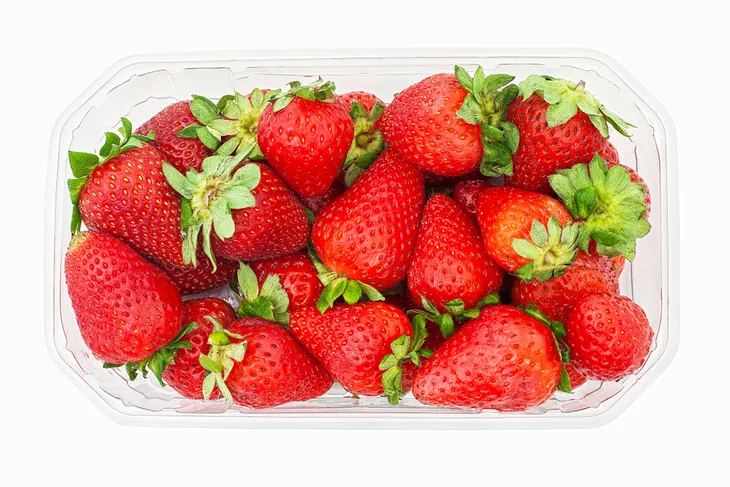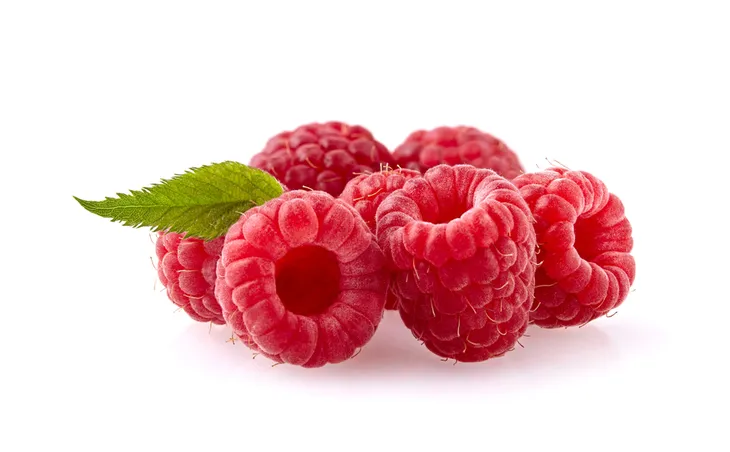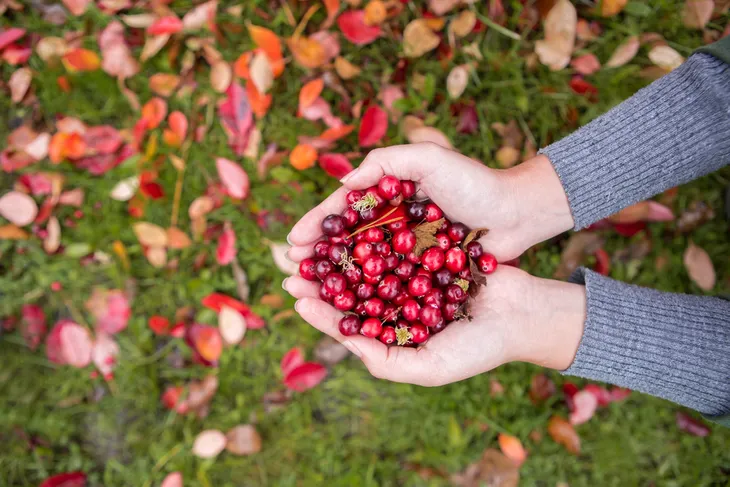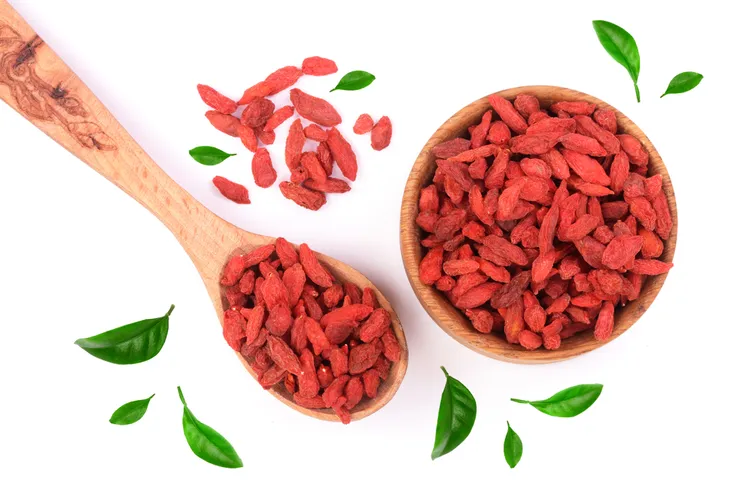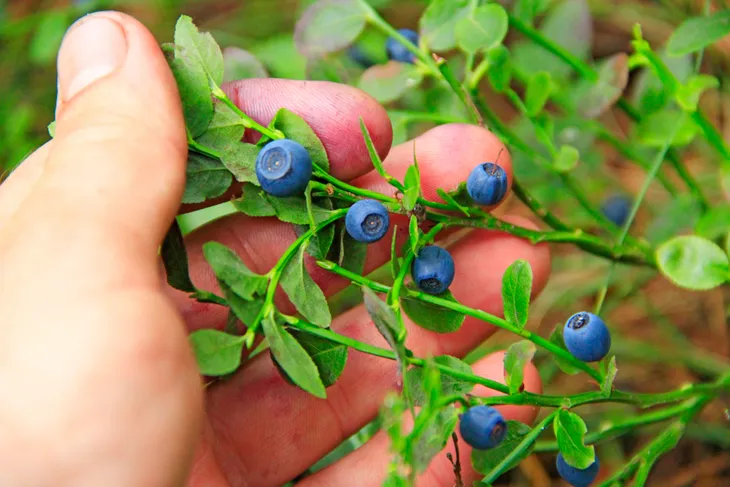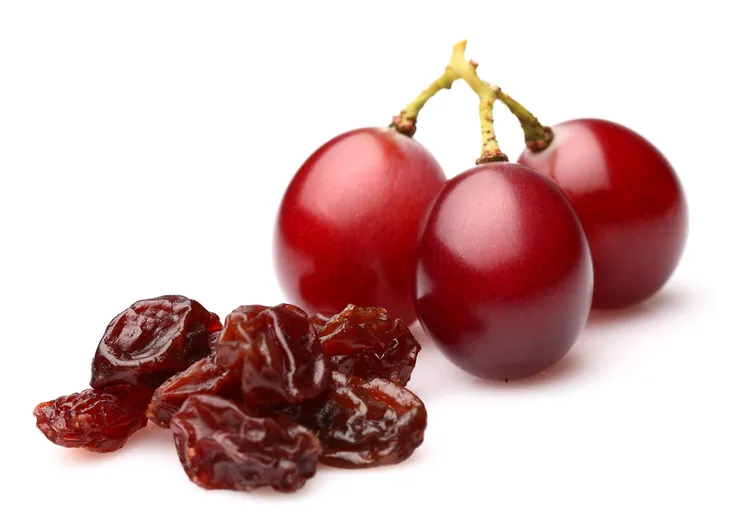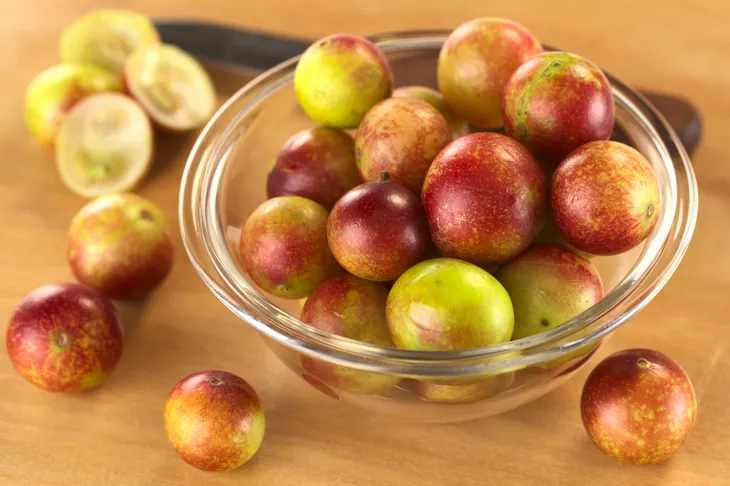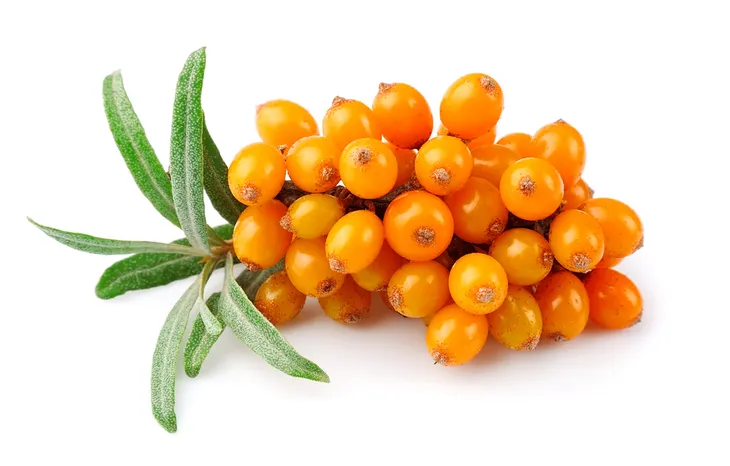Berries are small, but mighty. This fruit is so versatile, not only are there so many different berries out there for us to try. There are also so many different ways to enjoy them! Berries can be eaten on their own, or added to meals like oatmeal, yogurt, smoothies, desserts, salads, or even baked goods. Who doesn’t like a blueberry muffin or bagel in the morning?
While there’s no denying berries are delicious and versatile, what we’re really here to talk about is just how nutritious they are too. If you’ve ever wondered which berries are the healthiest or what benefits you’re reaping when you indulge in this sweet, juicy snack, then read this article! We’ve compiled a list of the absolute healthiest berries to enjoy…
Blackberries
First up, blackberries. While they aren’t as sweet in flavor as some of the other berries on this list, they’re still just as healthy. One of the common trends you’ll notice in most of the berries on this list is that they contain polyphenols which can help prevent cardiovascular disease and in some cases, cancer. Health.com encourages women to start eating blackberries because they are packed with polyphenols.
In addition to their heart healthy benefits, blackberries contain lots of fiber which will contribute to a healthy digestive system. Health.com says 1-cup of blackberries amounts to 7-grams of fiber. To put that in perspective, the recommended daily amount of fiber is about 25-35-grams, so even just one cup in the morning will help kickstart your daily goal! They’re also rich in vitamin C, contain iron, calcium, and vitamin A.
Blueberries
Blueberries are a common fruit choice, especially in the summer. They’re super easy to add to breakfast meals like cereal, oatmeal, or smoothies, even desserts sometimes! What’s even better is that they’re also loaded with health benefits, particularly vitamin K. According to Healthline, 1-cup of blueberries amounts to only 84-calories, 3.6-grams of fiber, and puts a good dent in the daily recommended amount of vitamin c, vitamin k, and manganese.
Similar to other berries, blueberries contain the antioxidant polyphenols, also known as anthocyanins. This is where a lot of their great benefits come from because research shows that anthocyanins may reduce oxidative stress and reduce the risk of heart disease. Healthline writes, “blueberries may improve other aspects of heart health by lowering ‘bad’ LDL cholesterol in the blood, reducing the risk of heart attack and enhancing the function of arteries.” Want one more? Studies have shown they could also reduce the risk of diabetes, contribute to slower rates of cognitive decline and keep the brain healthy as we age.
Strawberries
These are no doubt the most popular berries of all. Who doesn’t like strawberries? It’s so popular that it’s often featured as a “flavor” for many treats like candies, ice cream, shakes, etc. We have good news…this delicious berry is also loaded with health benefits! One cup of strawberries will provide 3-grams of fiber, 150-percent of the recommended daily intake of vitamin C, and 29-percent of the recommended daily intake of manganese, says Healthline.
A study published back in 2013 found that strawberries are good for heart health. The study looked at 93,000 women and the results showed that those who ate more than three portions of strawberries and blueberries a week had reduced their risk of heart attack by 30-percent. In addition to reducing the risk of heart attack, they could also reduce risk of heart disease, blood cholesterol, triglycerides, and oxidative stress. Strawberries can also reduce inflammation and help control blood sugar levels.
Raspberries
Raspberries are so delicious, they’re often paired with dessert and touted as a nice little treat. That’s largely due to their sweet flavor. They must be one of the few desserts that are actually good for us! Although just because you’re eating them on top of a cheesecake doesn’t make that dessert healthy, but on their own, raspberries are low in calories and loaded with fiber, vitamin C, vitamin K, and manganese. In addition to all of that, raspberries “contain antioxidant polyphenols called ellagitannins, which can help reduce oxidative stress,” writes Healthline.
If you’re not a fan of red raspberries, there are others to try that reap similar health benefits. Healthline notes that blackberries may improve heart health by reducing the risk of heart disease, through blood pressure and blood cholesterol. Two studies in particular have found that black raspberries could reduce inflammation “in people with metabolic syndrome and reduce the size of polyps in the colon.” Polyps are abnormal cell growths that could lead to cancer.
Acai Berries
You might not have ever heard of acai berries because they’re not one of the more popular choices among consumers in the U.S., but they’re super healthy. This Brazilian fruit grows in the Amazon region and is loaded with antioxidants and is a good source of fiber. In fact, they blow other popular berries like blackberries, strawberries and blueberries out of the water with their level of antioxidants. So much so that acai berries have become a common ingredient in health food supplements.
There are so many incredible health benefits that stem from the antioxidants in acai berries. For starters they can “increase blood antioxidant levels and reduce chemicals involved in oxidative stress,” writes Healthline. A small study of only 10 people showed that people who consume acai berry pulp or berries (about 200-grams per day) can reduce their blood sugar and blood cholesterol levels , while another study on athletes showed that drinking about 1-ounce of acai juice for six weeks can reduce blood cholesterol and reduce oxidative stress which prevents muscle damage. It’s important to note that when acai berries are freeze-dried or dried, it can affect their nutritional content.
Cranberries
Cranberries are more tart than they are sweet, but that’s what makes them unique! They’re a popular choice around the holidays like thanksgiving and Christmas because they offer the perfect pairing to some turkey and stuffing, as well as holiday drinks and treats. But we encourage you to start eating cranberries more often because they “may increase HDL, or good cholesterol, and may also help prevent urinary tract infections,” writes Health.com. While they’re not as great as some of the other berries on this list because most of the antioxidants are in the skin of the cranberry which means cranberry juice won’t offer as many health benefits. But the juice will contain chemicals that “prevent the bacteria E. coli from sticking to the wall of the bladder or urinary tract,” says Healthline.
In addition to possibly preventing urinary tract infections, Future Fit Training says this beverage could “prevent the development of stomach ulcers and cancer by preventing H.pylori from attaching to the wall of the stomach.” Cranberry juice has also been shown to be good for heart health by reducing cholesterol, blood pressure, oxidative stress and blood flow in the arteries.
Goji Berries
Goji berries are sometimes referred to as wolfberries. This fruit comes from China, but they’ve also become quite popular in Western culture. Since goji berries are sometimes used in traditional medicine it should come as no surprise that these berries have tons of great health benefits. All it takes is 1-ounce of dried goji berries to get 2.2-grams of fiber, 9-percent of the recommended daily intake of vitamin C, half the recommended daily intake of vitamin A, and 28-percent the suggested daily amount of copper, says Healthline. In addition to antioxidant polyphenols which as you might have noticed by now, are a common theme among all berries, goji berries also contain a high amount of vitamin A and zeaxanthin which can greatly improve eye health.
The source cites different studies that have proven the benefits of goji berries. For example, one study that examined 150 elderly people who ate 14-grams of goji berries a day found an improvement in any age-related decline in their eye health. Another similar study found that “eating goji berries can raise blood zeaxanthin levels.” Also a study published in the Journal of the American College of Nutrition discovered that drinking goji juice can help with weight loss. Their study saw people who drank goji juice for two weeks were able to increase their metabolism and lose weight. Sign me up!
Bilberries
Bilberries are a European fruit and since they look quite similar to the North American blueberry, they’re often mistaken for them. Their nutritional content can be broken down like this: 3.5-ounces of bilberries adds up to only 42-calories, but contains 4.9-grams of fiber and 24-percent of the recommended daily intake of vitamin C. Not too shabby! In addition to being nutritious and fulfilling, bilberries can have a huge impact on our health in a much bigger way. There have been several studies that have shown this fruit can reduce inflammation. For example, there were studies that found eating or drinking bilberry juice “can reduce inflammation in people at risk of heart disease or metabolic syndrome,” writes Healthline.
The same source cites a different study which looked at 110 women who ate bilberries for one month and saw reduced inflammation and weight loss! Other documented studies have found that eating bilberries on a regular basis can reduce blood sugar and increase HDL “good” cholesterol while reducing “bad” cholesterol at the same time. Need we say anymore? Time to add this fruit onto your next grocery list!
Grapes
You’ve probably never thought of grapes as a berry, but they are! If you’re like me, you consume a lot of grapes…especially considering they’re used to make wine! They’re also consumed as raisins and in juice. Some of the best benefits of grapes are in their skin, but the inside is rich in antioxidants as well. Healthline cites two studies that have shown grape seeds can lower blood pressure and heart rate making them good for the heart. Other studies listed by Healthline found that eating grapes on a regular basis could reduce the risk of type 2 diabetes and reduce blood cholesterol and oxidative stress in people with high cholesterol.
Future Fit Training also notes that when consumed on a regular basis, grapes have been shown to improve memory and driving performance.
Camu Camu Berries
Another fruit that comes from the Amazon are camu camu berries. These ones are actually from within the rainforest, so they might be a little harder to find at the grocery store than some strawberries and blueberries. However, these berries are worth the hunt! They’re loaded with vitamin C which makes them a great combat fighter against colds and the flu. Huffington Post writes that camu camu berries can also help “maintain healthy eyes, gums and skin, and play a role in strengthening the tendons and ligaments.”
If you really can’t find these berries anywhere, but would still like to add them to your diet, Huffington Post suggests looking for them as a powder. Take a teaspoon of this powder and add it to juices, smoothies, or even salad dressings.
Goldenberries
We must admit, goldenberries look a little strange. They remind me of little tomatoes and when they’re dried they look like nuts! This is due to their yellow-orange color which strays from the typical red, blue, or black color of most other berries. But don’t be put off by this because they’re among some of the healthiest berries available to us. Huffington Post talked to registered dietitian Lauri Boone who wrote the book “Powerful Plant-Based Superfoods,” and she said goldenberries are rich in vitamin B, protein, and fiber.
What’s the scientific basis of all this..well, we’re glad you asked! The Huffington Post points out that research shows goldenberries can help us accomplish our weight loss goals because they’ll regulate our metabolism and keep us feeling full for longer. “They also provide strong doses of antioxidants and anti-inflammatory compounds,” writes the source. Similar to camu camu berries, fresh goldenberries are hard to find outside their native South America, but you should be able to find them in dried form at most supermarkets.
Sea Buckthorn Berries
Another strange looking fruit is sea buckthorn berries. Like goldenberries this fruit has a yellow, orange color and their shape resembles that of a grape. They’re not sweet in flavor, but rather have more of a tart taste, but Lauri Boone, registered dietitian told Huffington Post they’re “nature’s multivitamin.” Their nutritional benefits start with a high level of B-complex vitamins, including vitamin A, C, E, and K. Outside their nutritional content, Boone also said sea buckthorn berries can “boost the immune system, accelerate wound healing, and promote the growth and repair of body tissues.” They’ve also proven to be good for the heart, have cancer fighting properties and carotenoids.
